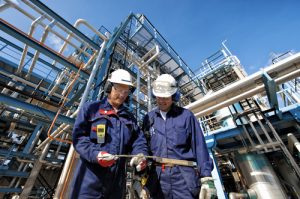
U.S. Sen. Shelley Moore Capito (R-WV) and U.S. Rep. Mike Kelly (R-PA) on May 23 sponsored a pro-steel production bill in their respective chambers.
“This bipartisan legislation will help preserve and grow this vital industry while providing environmental benefits at the same time,” Sen. Capito said. “It’s an example of exactly the kind of solutions we need to focus on right now — common sense measures that will help improve both our economy and our environment.”
The Steel Industry Preservation Act, S. 1627/H.R. 2993, would amend the Internal Revenue Code of 1986 to extend and modify the Section 45 credit for refined coal from steel industry fuel, according to the text of the legislation.
“We need to eliminate barriers to new growth and I am a proud of sponsor of this legislation, which would do just that,” said Rep. Kelly, who introduced H.R. 2993 with U.S. Rep. Michael Doyle (D-PA) to eliminate an Environmental Protection Agency (EPA)-designated hazardous waste. Sen. Capito and U.S. Sen. Sherrod Brown (D-OH) offered S. 1627.
If enacted, the bill would incentivize the production of steel industry fuel, which is produced via liquefying coal waste sludge, an EPA-designated hazardous waste. The tax credit would be worth $2 per barrel of oil equivalent for the production of steel industry fuel made at a steel industry fuel facility. The credit would extend for 10 years from the date the facility becomes operational, according to a summary of the bill.
“The steel industry is an important part of our economy and critical to American manufacturing, energy production and even national security,” said Sen. Capito. “It also creates thousands of jobs for West Virginians and for others across the country.”
Rep. Kelly added that western Pennsylvania’s long history of steel production is “making a roaring comeback in today’s economy.”
“Our work isn’t done, however,” Rep. Kelly said. “There is still much more we can do to bring down the cost of steel to grow the industry and create more jobs. We need to eliminate barriers to new growth.”



